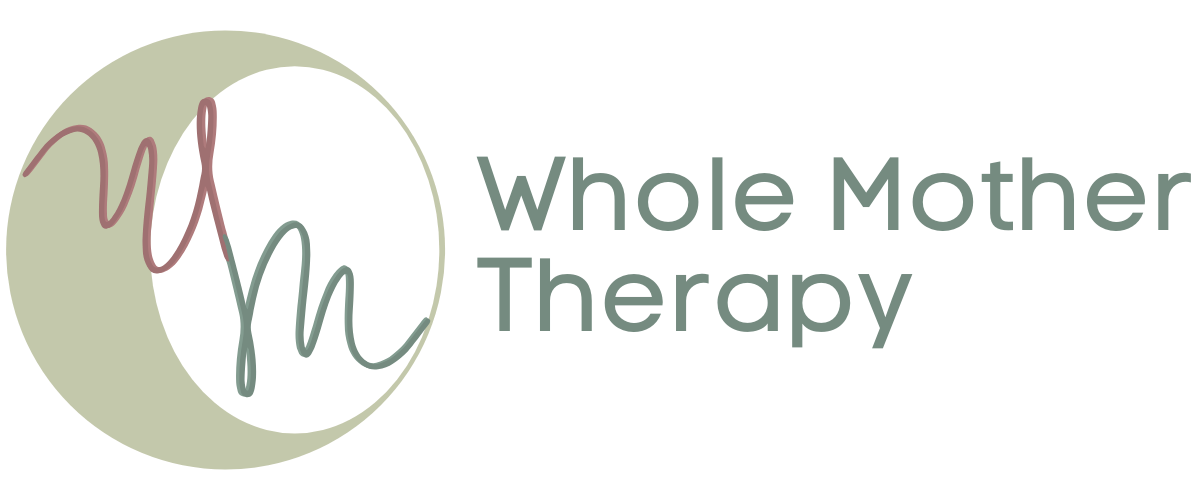Navigating the Grief of Infertility
When most of us think about pregnancy and family planning, we naturally focus on the beautifully positive elements of conception and childbirth. But these experiences also hold the potential for grief, which can be painful and profound. Fertility challenges affect 12-15 percent of couples trying to conceive, which amounts to nearly 50 million couples worldwide. And research suggests that infertility is a shared problem: 40 percent of cases are because of female factors alone, 40 percent are the result of male factors alone, and 20 percent involve both male and female factors. Yet for such a common experience we rarely talk about its psychological impact on aspiring parents and couples or ways to honor and navigate the complex feelings that arise.
Finding a Path Forward
Take a moment to remember the grief you felt at the loss of a loved one. The relationship you had with this person was well-defined, and you can look back and cherish those moments you shared with them. Following the passing of your loved one, you may have received an array of support from your village in the form of condolences and flowers, home-cooked food, and meaningful gifts. You may have taken some time away from work to mourn the loss and attend to the funeral rituals and services. Your loss was acknowledged by many, and you may have felt some communal comfort as you said your final goodbye. These rituals offered some closure and a path to follow as you navigated your grief.
The grief associated with infertility is much less clearly defined and rarely recognized in such a public way. Which makes it difficult for those around you to acknowledge your many losses and offer the kind of support you need. This grief can be very difficult to navigate, and your desire for closure becomes complicated.
Grief Comes in Many Forms
Let’s talk about the types of things you may grieve as you navigate infertility.
1. Your reproductive story.
Did you know that most of us have a reproductive story? Our reproductive story is a narrative we began to form as early as toddlerhood as we started to explore our sexuality and use our imagination to “play house,” taking on the roles of Mommy and Daddy. As we got older, perhaps we painted a picture of our “perfect someone,” planned our wedding, or plotted out a schedule for when we would have children. For some of us, our reproductive story began later in life, when we met someone special and suddenly couldn’t imagine not having a baby with our partner’s features and personality.
2. Your potential pregnancy and parenting.
When we are given an infertility diagnosis, it’s common to catastrophize and imagine the worst. Many of us ponder whether we’ll ever get to experience pregnancy, be able to provide support to our pregnant partner, or experience the beautiful chaos of parenting. Research shows that we humans have a powerful biological desire to bring forth children into the world and see our legacy passed on.
3. Your intimacy with your partner.
When we decide to start trying to conceive, it can get wild. These moments are full of pleasure, passion, and hope that in a month or two we’ll see two glorious pink lines on that pregnancy test. As we keep trying month after month with no success, however, intimacy can suffer and sex can become monotonous or like a chore. Research shows that more than 80 percent of couples struggling with infertility face intimacy issues at some point in their journey. During stressful moments, our ability to cope, filter through our emotions, and communicate in healthy ways becomes impaired. When this happens, we struggle to support our partner in the way they need because of emotional and physiological changes such as high cortisol levels, getting stuck in fight-or-flight, and emotional overwhelm, or simply because we’re trying to support ourselves through a difficult time. Some of us also struggle with mental health issues that derive from feelings of guilt and shame.
4. Your social and familial relationships.
Although infertility is common, affecting one in eight American couples trying to conceive, it remains a frustratingly taboo topic. The presence of shame and guilt is one reason people don’t talk about infertility. Because so little time is spent advocating for fertility rights, sharing infertility stories, and establishing support systems, many people do not know how to empathize with a person struggling with infertility. Consequently, our friends and family may have a difficult time showing up for us. We often find ourselves on the receiving end of glib or invalidating statements such as, “When are you going to have children?” Or “Just don’t stress about it, it’ll happen.” Or “If it’s meant to be, it will be.” When we feel invalidated, small ruptures occur in those relationships. When we feel unsafe in those spaces, we do less socializing and have fewer meaningful interactions, which can lead to isolation.
This works in the other direction, too. Some of us have a great support system yet distance ourselves because it feels painful to be around those closest to us. Often this has to do with how difficult it can be seeing family and friends reach all those beautiful milestones—pregnancy announcements, baby showers, birth and parenting stories, children’s birthdays—that we long for. Friends and family members who have had these experiences naturally tend to talk about them a lot during gatherings, which can open fresh wounds for us. This may also result in relationship ruptures and a desire to socialize less.
Tools for Healing
We’ve discussed a few reasons why you may grieve during an infertility journey. Now let’s talk about some useful tools that can help you manage the emotional roller coaster of infertility.
1. Share your grief with a safe person.
That someone can be a friend, a family member, a mentor, a counselor, or a trained therapist. It’s important for you to find expressive outlets during this painful experience. Research shows that processing our emotions and experiences allows us to make sense of our grief, find some release, and feel validated and seen. Repression of our experiences can lead to physical and mental health problems.
2. Learn to self-validate.
Your grief is valid and deserves to be honored—by you. Those around us sometimes struggle to meet our needs, but we can learn to show up for ourselves in meaningful ways. To do this, ask yourself, “What do I need from my partner/friend/family/therapist? Do I want to be held, heard, allowed to fall apart? What do I need from myself?” Try to identify your needs. Once you’ve identified them, allow yourself to seek ways to meet these needs. Sometimes we can meet them ourselves, but other times we need to express them to a safe person. Often, this can be as simple as telling our partner, “I need you to hold me without saying a word while I fall apart.”
3. Seek New Kinds of Intimacy.
Although intimacy may feel challenging when we’re struggling with infertility, it’s an essential part of relationships. Intimacy can be shared not only with your partner but with your friends and family, too.
With your partner: You can take sex off the table for a little while and try building intimacy in other ways, such as holding each other, kissing, caressing, massaging, or just being physically close to one another. Communicate your needs and see if your partner can meet you halfway. Discuss what quality time means for each of you and proactively devote time to doing these activities with/for each other. If you feel that infertility has consumed your relationship, try scheduling “fertility talks” once or twice a week for a specified period of time. This will free up space for the two of you to nurture your relationship outside of those challenges so you’re reminded of how full your connection is beyond infertility.
With your family and friends: Identify what triggers you in social outings and see if you can start setting boundaries. For example, if you get triggered when people ask about your fertility, send a text to the group you’ll be meeting beforehand asking them to take fertility questions off the table during the outing. You can also request that any pregnancy announcements be sent via text or email rather than made in person so you’ll have time to process the news on your own terms. You can also come up with silly comebacks for when you’re asked an insensitive question about your fertility. Here are some examples for when someone asks, “When are you planning to have children?”:
“As soon as I figure out how. Got any suggestions?”
“Let me check … How about July 18th at 9:01 pm?”
“I already have one.” (then point to your spouse)
“We haven’t finished with the ‘trying’ part yet.”
If you’re finding it especially difficult to navigate these feelings and situations, and your well-being is suffering, seek professional help from a therapist who has experience and training in infertility. You can also find help by joining an infertility support group or community forum.
INTERESTED IN THERAPY FOR INFERTILITY IN CALIFORNIA?
It is vital that aspiring parents who are struggling with infertility receive the support they need for their mental and emotional health, as well as the health of their relationship. At Whole Mother Therapy, we offer online therapy in California so you can get the support and resources you need from an experienced, caring therapist. To get started with online infertility therapy and begin the process of healing, simply follow the steps below.
Get the support you need from an online infertility therapist.
OTHER SERVICES WHOLE MOTHER THERAPY OFFERS
Our Pasadena-based online therapy practice offers a variety of mental health services to support aspiring parents, single parents, couples, and families. Our services include individual therapy for new parents, postpartum anxiety treatment, therapy for birth trauma, therapy for infant loss and pregnancy loss, postpartum depression support, marriage counseling and couples therapy for new parents, counseling for parental burnout and overwhelm, therapy for infertility, and online therapy in California for new and expecting parents.
We also offer an eight-week in-person Sacred Motherhood Circle to honor the transitions and transformations of motherhood. And we hold several support groups, including an online pregnancy support group and an online postpartum support group. Finally, you can read more about our services, values, and resources on our therapy blog.



